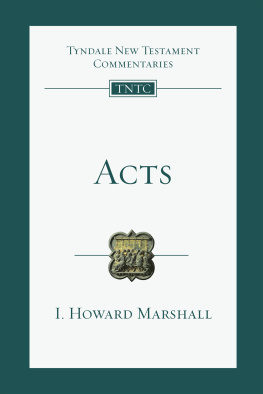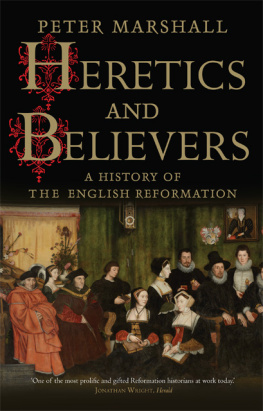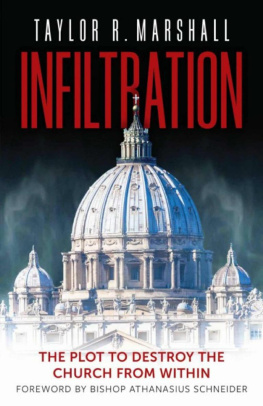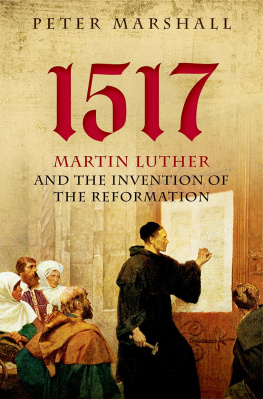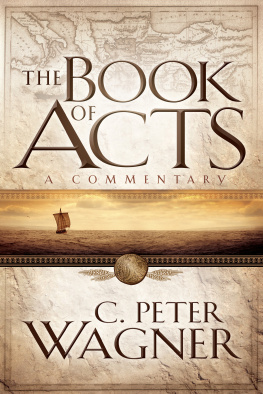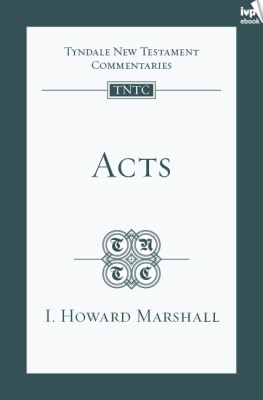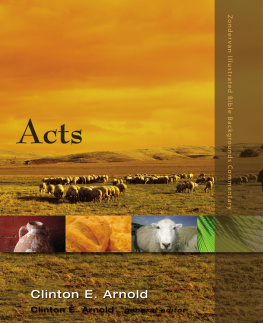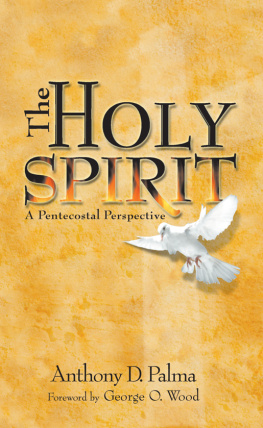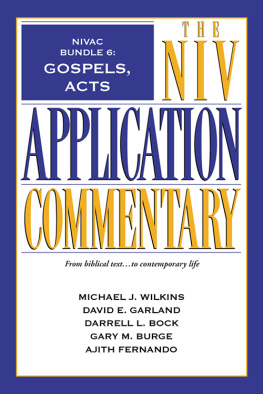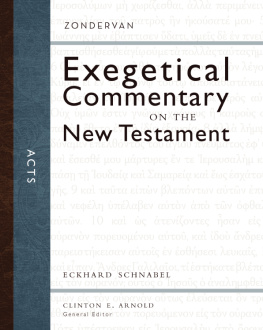To
FREDERICK FYVIE BRUCE
on his seventieth birthday
TYNDALE NEW TESTAMENT
COMMENTARIES
VOLUME 5
GENERAL EDITOR: LEON MORRIS
ACTS
AN INTRODUCTION AND COMMENTARY
I. HOWARD MARSHALL
Inter-Varsity Press, USA
P.O. Box 1400, Downers Grove, IL 60515-1426, USA
World Wide Web: www.ivpress.com
Email:
1980 by I. Howard Marshall
First published 1980
All rights reserved. No part of this publication may be reproduced, stored in a retrieval system or transmitted in any form or by any means, electronic, mechanical, photocopying, recording or otherwise, without the prior permission of Inter-Varsity Press.
InterVarsity Press, USA, is the book-publishing division of InterVarsity Christian Fellowship/USA movement of students and faculty active on campus at hundreds of universities, colleges and schools of nursing in the United States of America, and a member movement of the International Fellowship of Evangelical Students. For information about local and regional activities, write Public Relations Dept., InterVarsity Christian Fellowship/ USA, 6400 Schroeder Rd., P.O. Box 7895, Madison, WI 53707-7895, or visit the IVCF website at
ISBN 978-0-8308-9831-2 (digital)
ISBN 978-0-8308-4235-3 (print)
Any internal page references refer to page numbers in the print edition.
This digital document has been produced by Nord Compo.
TYNDALE NEW TESTAMENT
COMMENTARIES
VOLUME 5
ACTS
General preface
The original Tyndale Commentaries aimed to provide help for the general reader in his study of the Bible. They concentrated on the meaning of the text without going into scholarly technicalities. They aimed at a mean between being too short to be useful and being too extensive for the present reader. Most who have used the books agree that there has been a fair measure of success in reaching that aim.
Times, however, change. The first Tyndale Commentaries appeared over twenty years ago and it is felt that some volumes do not meet the changed needs. New knowledge has come to light in some areas. The discussion of critical questions has moved on. Bible-reading habits have changed. In an earlier day most people read the Authorized Version and comments could be based on that. This situation no longer obtains and indeed the last commentary in the original series was based on the Revised Standard Version. In all the circumstances it is felt that the needs of students will best be served by replacing some of the original volumes. This is not meant as an expression of dissatisfaction with them. They served the needs well, but in these days some new needs will be better served by new books.
The original aims remain. The new commentaries are neither minuscule nor unduly long. They are exegetical rather than homiletic. They do not aim to solve all the critical questions, but none is written without an awareness of the critical questions that engage the attention of New Testament scholars. Serious consideration is normally given to such questions in the Introduction and sometimes in Additional notes. But the main thrust of these commentaries is not critical. These books are written to help the non-technical reader to understand his Bible better. They do not presuppose a knowledge of Greek, and all Greek terms discussed are transliterated; but the authors have the Greek text before them and the commentaries are written in the light of the originals. The English text used is normally the Revised Standard Version, though it is borne in mind that these days readers use a variety of translations.
The original series owed an immense debt to Professor Tasker. He edited the whole, and wrote four of the commentaries himself. It is fitting to place on record this acknowledgment of our debt. I can therefore conclude in no better way than by echoing what Professor Tasker said of the original series. It is the hope of all concerned with these replacement volumes that God will graciously use them to help readers understand as fully and clearly as possible the meaning of the New Testament.
Leon Morris
Authors preface
At a time when there are almost innumerable commentaries on the books of the New Testament, anybody who dares to add to their number is under some obligation to justify producing yet another. In the present case it is not enough to claim that the demands of a series had to be fulfilled, since the Tyndale New Testament Commentaries already contained a volume on Acts by the distinguished Classical scholar, Professor E. M. Blaiklock. A number of factors, however, made a replacement of this work desirable.
In the first place, Professor Blaiklock deliberately set himself the limited task of writing an historical commentary, in the sense that he concentrated on illustrating and expounding the book of Acts against its historical background in the Graeco-Roman period. The course of study since his commentary was published has emphasized the theological importance of Acts, and it has become desirable that some account should be taken of this interest. It is significant that F. Bovons excellent survey of recent scholarship on the works of Luke is entitled Luc le thologien.
The historical problems cannot be set aside in favour of a purely theological approach, however, and this leads to a second reason for attempting a fresh study. Shortly before the appearance of Professor Blaiklocks work there appeared another commentary in German from the pen of Professor E. Haenchen; with much learning and great attention to detail the author made Luke out to be something more like a writer of historical fiction than a serious historian. Haenchens case needs to be taken seriously and evaluated. If, therefore, the present work appears at times to be overpolemical and one-sided in its concentration on historical questions, this may be explained by the fact that so far commentators (with the notable exception of R.P.C Hanson) have made little attempt to come to terms with Haenchens approach. It should perhaps be emphasized that although this commentary is frequently critical of what I consider to be Haenchens unjustified scepticism regarding the historicity of Acts, his work is an outstanding piece of scholarship which has done much to rekindle interest in the study of Acts.
In keeping with the expressed aim of the series, the commentary is primarily exegetical, although it is hoped that sufficient pointers have been given to the expository value of the text. While the commentary is intended to serve a wide range of readers, I have also tried to make it useful for the theological student, and to this end I have attempted to give some reference to the literature on Acts which has appeared subsequently to the publication of Haenchens commentary and is not listed in his bibliographies.
I should like to express my warm thanks to Dr Leon Morris, the general editor of the series, and to Dr Colin J. Hemer for their helpful comments on the manuscript, and also to Miss T. Clark and Mrs P. Henderson for help with the typing.
The commentary has been written in the University of Aberdeen where Sir William Ramsay was a professor and Professor F.F. Bruce a student. It will be obvious how much I have been influenced by these distinguished writers on the book of Acts, and it gives me the greatest of pleasure to express something of my gratitude to the latter for his friendship and encouragement in many ways by dedicating this book to him.

